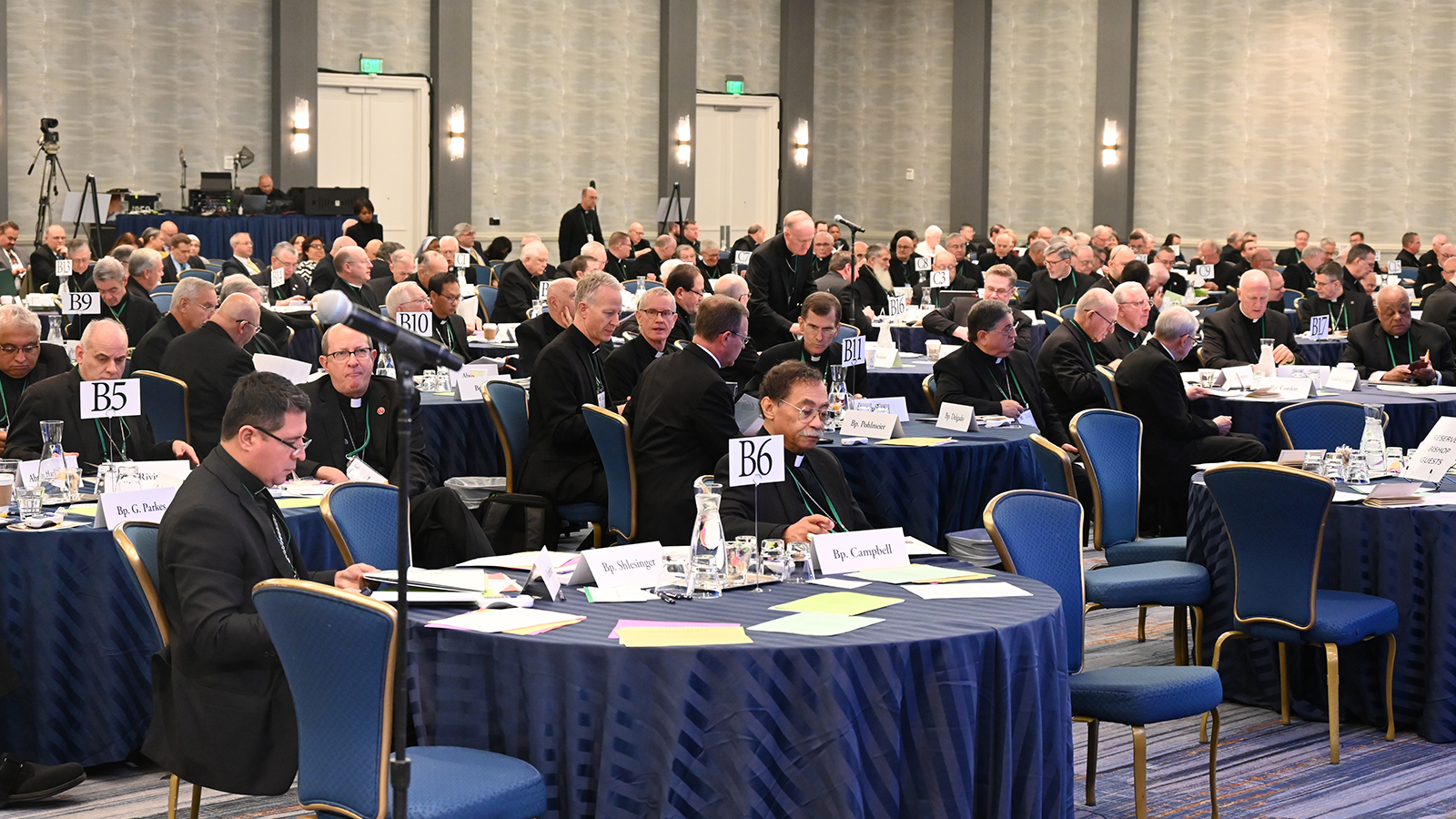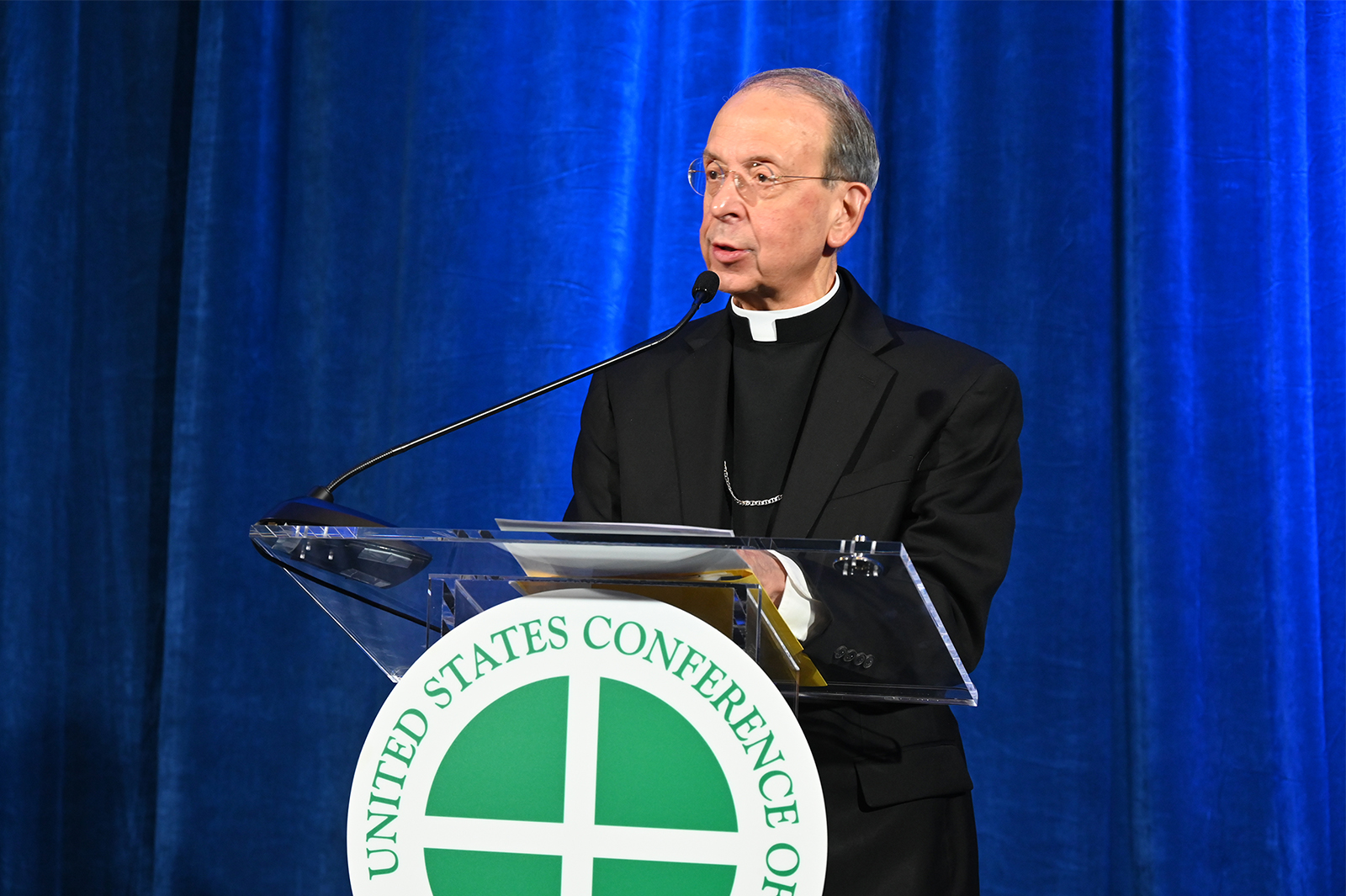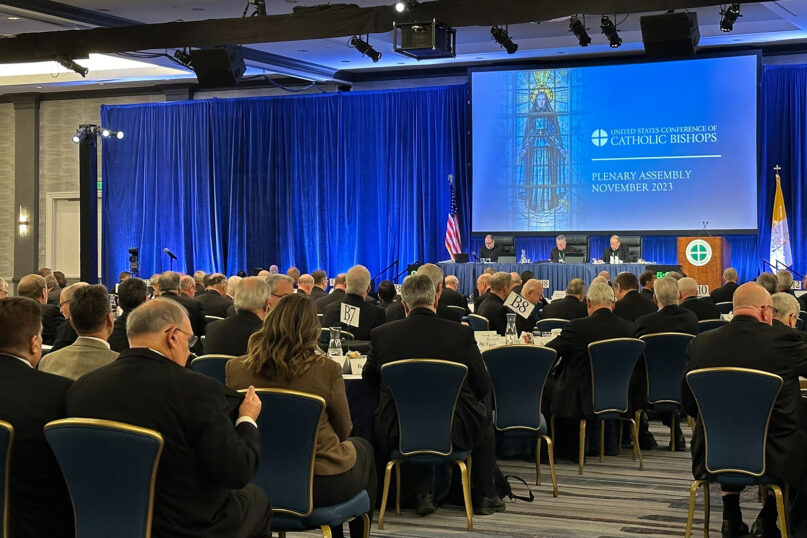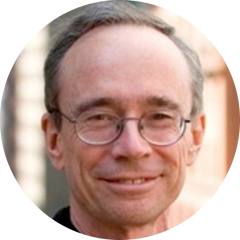(RNS) — The U.S. bishops’ meeting in Baltimore this week had the potential to reinvigorate the American church, but instead it showed that people should not look to the bishops for leadership. On the agenda were numerous minor items that most organizations would deal with in some other way, but two items were important enough to require the undivided attention of the bishops: synodality and global warming. These items were not given the attention they deserved.
Every four years, a year before the presidential election, the bishops provide advice to American Catholics about how they should fulfill their political responsibility. Their document, “Forming Consciences for Faithful Citizenship,” has not been revised since 2015 because the bishops are too divided to agree on what to say. Instead, they drafted an introductory letter in 2019 to go with the document.
Even that letter was contentious because of language saying abortion is the preeminent priority for the bishops. Some fear this language is being used to urge Catholics to ignore all other issues as less important than abortion.
This year’s letter once again states that “the threat of abortion remains our preeminent priority because it directly attacks our most vulnerable and voiceless brothers and sisters and destroys more than a million lives per year in our country alone.”
The letter also says, “Other grave threats to the life and dignity of the human person include euthanasia, gun violence, terrorism, the death penalty, and human trafficking. There is also the redefinition of marriage and gender, threats to religious freedom at home and abroad, lack of justice for the poor, the suffering of migrants and refugees, wars and famines around the world, racism, the need for greater access to healthcare and education, care for our common home, and more.”
If these “other grave threats” hold less priority than abortion, then Catholic voters may believe they should only consider abortion when voting even though “Faithful Citizenship” does not say that.

Bishops attend the annual fall meeting of the U.S. Conference of Catholic Bishops, Nov. 15, 2023, in Baltimore. (RNS photo/Jack Jenkins)
On the other hand, San Francisco Archbishop Salvatore Cordileone suffered a surprising defeat by Toledo Bishop Daniel Thomas for chair of the bishops’ pro-life committee. The vote (161 to 84) was not even close, perhaps indicating that, although abortion is still their preeminent priority, after so many defeats at the polls, they recognize a culture warrior is not the best person to lead their campaign. They need to try something different.
Amazingly, this year the introductory letter was approved without debate. The chair of the taskforce drafting the letter, Baltimore Archbishop William Lory, introduced it to the bishops, the president of the conference called for a vote and it passed overwhelmingly 225 to 11, with seven bishops abstaining. No one spoke for or against the letter.
It was the fastest approval of a political responsibility document in the history of the conference.
Opponents of the “preeminent priority” decided contesting the language would be unsuccessful and would simply feed the media hoping to cover a fight among the bishops. Instead, the bishops kept the meeting so boring reporters wondered why they bothered to come. Reporters were not even given copies of the letter until after it had been approved by the bishops. I did not even have time to read it before the press conference following its approval.
The letter, six bulletin inserts and video script approved in the same vote do not mention global warming. The letter only mentions “care for our common home,” while bulletins four and five only mention “climate change” in passing.
Four years ago, at a press conference following approval of the 2019 introductory letter, Archbishop Daniel DiNardo, as president of the bishops’ conference, said global warming was an important issue but “not urgent.” The bishops appear to believe that still, despite the urgency Pope Francis expressed last month in his latest climate document “Laudate Deum.”

Baltimore Archbishop William Lori speaks to the media during the annual fall meeting of the U.S. Conference of Catholic Bishops, Wednesday, Nov. 15, 2023, in Baltimore. (RNS photo/Jack Jenkins)
Asked by RNS reporter Jack Jenkins during a news conference about concerns regarding the treatment of climate change in the document, Lori said the reason bishops so prioritize “the unborn as we do is because they are utterly voiceless and defenseless, and abortion is a direct taking of human life.”
Whereas, he continued, the effects of climate change “are indirect rather than direct.”
“That does not make them less serious. It, however, does affect how we have weighed in things,” he added.
One can only wonder whether the letter would have been different if the bishops had drafted it in a synodal fashion with extensive consultation with the laity. But like global warming, the bishops did not see synodality as a priority.
When reporting to the bishops on their experience at the synod, the delegates stressed their encounter with people from other parts of the world. They did not speak of the synodal methodology that prioritized prayer, listening and sharing of experience. Thus, the bishops can continue to believe synodality is already present in the American church.
In his presidential address to the meeting, Archbishop Timothy Broglio pointed to “the many synodal realities that already exist in the Church in the United States. The collegial atmosphere that characterizes these assemblies, the excellent consideration and interaction that typifies the work of the National Advisory Council, the work of diocesan pastoral councils, presbyteral councils, review boards, school board and so many other organizations come readily to mind.”
He also spent time praising the American church’s evangelization work. Some commentators believe he was responding to criticism of the bishops from the pope’s representative, Cardinal Christophe Pierre, expressed in an interview in America magazine.
There also was no discussion of the next steps in the consultative process that is to take place prior to the next session of the synod in October 2024.
Nor did the bishops discuss the 40-page Synthesis Report from the synod. They said they would discuss it at their spring meeting. They should have discussed it at this meeting to prepare for consultations in their dioceses, and then discuss it again in June after they have heard from their people.
Synodality and global warming, major priorities of Pope Francis, are not priorities of the U.S. bishops. Don’t expect to hear talk, let alone sermons, about global warming during the election season. Nor is it clear how the bishops will proceed on the consultation process prior to next year’s session of the synod on synodality.
Fumbling the ball on these issues means missed opportunities to revitalize the American Catholic Church.






